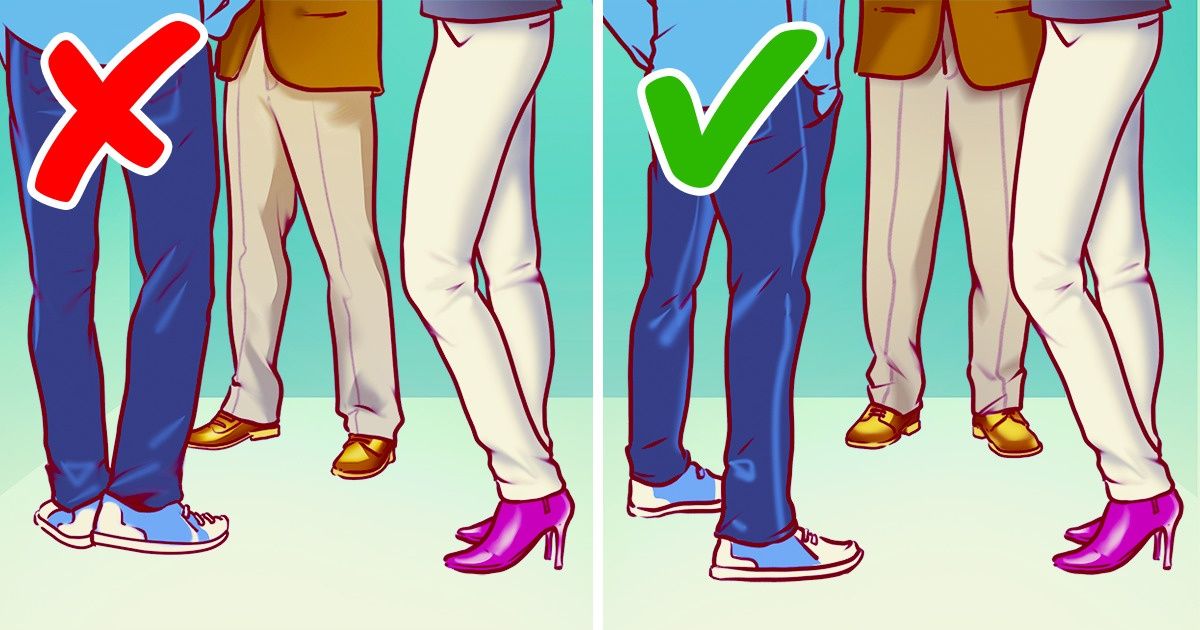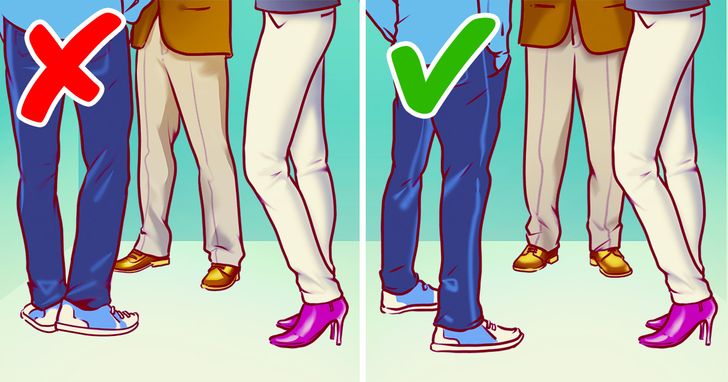20 Pictures That Show How Deceitful First Impressions Can Be


Do you often hold doors open for other people? How about parking close to another car in an almost empty parking? These are the things we do almost subconsciously. In this article, we found out what scientists think about it. It turns out that for every unspoken rule there is a simple explanation.
We at Bright Side collected 9 ordinary rules and found out why people follow them.
Imagine you are driving to an important meeting in an unfamiliar place. It’s likely that you will stop talking to the other passengers, turn the volume of the radio down, or turn it off completely and focus on the road so you don’t get lost.
A professor in the Department of Psychological and Brain Sciences at Johns Hopkins University, Dr. Steven Yantis, proved that in moments when we focus our attention on listening, we are less aware of the visual information that our brain gets. That’s the reason why we very often we need to turn off the background noise so we don’t miss the turn that we need to take.
If our hands are not engaged in some activity during a conversation, then we usually start to actively gesticulate them. And that’s pretty normal.
Professor Andrew Bass, from Cornell University, found out during his research that our instinct to gesticulate during conversations is part of our evolution. Scientists traced how the neural networks in the brain that help us gesticulate and speak developed and found that the social signals that birds and mammals (including humans) use come from the hindbrain of fish. That’s why coupling speech and gestures have evolutionary origins.
This behavior is explained by the fact that humans are social beings. We often follow the crowd and that’s why in a normal situation, we automatically park our car near the only other car in the parking lot.
Rob Henderson, a research assistant at Yale University, analyzed the research on this topic and outlined several reasons why people follow the crowd.
One of them is because the number of products and services around us is skyrocketing. We don’t have enough time to test them all. That’s why we use things that have already been tested by the majority. That’s also the reason why in commercials we very often can hear the statement that this product is recommended by 9 out of 10 experts. That’s how they are trying to prompt us to follow the crowd.
Public toilets are not a very pleasant place even if they are perfectly clean. The thing is that personal space and confidentiality are important for all of us. However, there are also exceptions to this rule — like shameless and tactless people.
Anyway, the majority wouldn’t want to use the toilet under the wandering glance of someone else’s eyes. That’s the reason why men prefer to use urinals located at some distance from each other.
This fact is actually pretty strange because it contradicts many pieces of research studying deficiency. They say that the scarcer a product is, the more we want to get it. That’s why in sale commercials we often hear that the amount of this product is limited.
However, scientists Daniel A. Effron and Dale T. Miller from Stanford University have specified during their research that people in a big company don’t take the last piece of pizza, the last doughnut, or the last gum in a pack because they don’t feel that they have this right. Specialists called this phenomenon the diffusion of entitlement.
According to a TrekAce survey, only 6% of men said that they would ask the way from a stranger if they were lost. In the same study, it was found that on average men travel about 900 extra miles within 50 years of their life because they refuse to ask for directions.
Mark Goulston M.D. tried to explain the reasons for this. In his opinion, men don’t ask for help when they understand that they got lost because they don’t want to feel incompetent, vulnerable, or even humiliated.
From our childhood, we are taught to hold doors for other people because it’s correct and polite. However, is there anything else besides our desire to be polite that prompts us to do it?
Scientists think yes. In an article, written by Joseph Santamaria and David Rosenbaum it’s said that we hold doors for others to minimize the collective efforts spent, meaning that a person for whom you have held the door didn’t have to spend their energy. While next time, when someone holds a door for you this will prevent you from spending that extra effort too.
In fact, it personifies the “golden rule of morality” — treat people the way you want them to treat you.
Basically, we try to spend our money rationally. And that’s why we usually choose products with a price and quality that match well. That’s the reason why mostly we prefer to buy neither the most expensive nor the cheapest goods. In the first case, in a customer’s opinion, the price could be overestimated, while in the second case it’s the quality of the product that could be compromised.
Even though we find this behavior reasonable, it’s worth noting that marketers are also aware of it. Sometimes in order to sell similar products, they intentionally place the most expensive and a cheaper product next to each other. Most of the time buyers don’t have any hesitations and end up buying the cheaper product.

It’s not just the position of the body itself that matters in conversations, but also the position of feet. If your date’s feet aren’t turned toward you, but their torso is, it means that the person is not interested in the conversation.
Joe Navarro M.A., in his book ’What Every BODY is Saying,’ explains that it all comes from our nature — our body makes sure that our feet could react right away if it feels some threat. It’s a survival instinct. We keep our legs crossed when we feel comfortable, for example, when we are alone in an elevator, but we will instantly uncross them if a group of strangers comes in to be able to quickly escape. Therefore, when a person feels bored or not interested, their feet will also be oriented toward the way out or toward another person.
What other rules would you add to this list? Please tell us about them in the comments!











